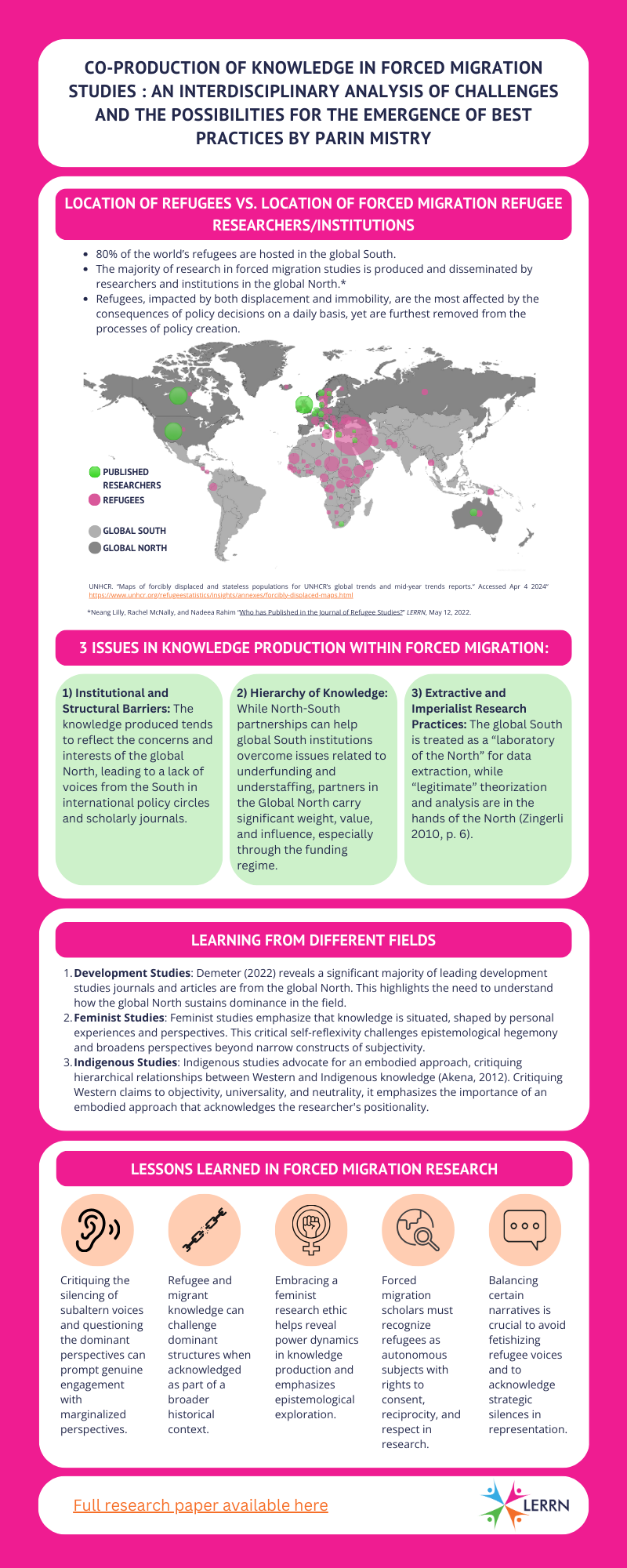Parin Mistry, Carleton University
Executive summary:
Although 80% of the world’s refugees are hosted in the global South, the majority of research in forced migration studies is produced and disseminated by researchers and institutions in the global North. The asymmetry of power in knowledge production is not limited to the North-South divide, but it also occurs between researchers and their research subjects (refugees). This type of hegemonic scholarship plagues all aspects of the research process, from the choice of methodology and research questions to the publication and dissemination of findings, and reflects the privileged position of global North scholars. Given the geopolitical context within which refugees find themselves situated, addressing these challenges is especially urgent as refugees, impacted by both displacement and immobility, are the most impacted by the consequences of policy decisions, yet are furthest removed from the processes of policy creation.
This paper attempts to demonstrate how understandings of the temporal, spatial, and embodied aspects of displacement and forced migration may be enhanced through a renewed approach to research that excavates hidden agency and power hierarchies, as well as the challenges and limitations of pursuing such diverse methods to knowledge production. It conducts an interdisciplinary analysis of knowledge production, drawing on the theoretical insights of development studies, feminist studies, and Indigenous studies to make visible structures of power and oppressive practices within forced migration research. It examines what sorts of best practices are available and makes recommendations for how they can be wielded to navigate and dismantle the dominant structures of knowledge production in forced migration research.
